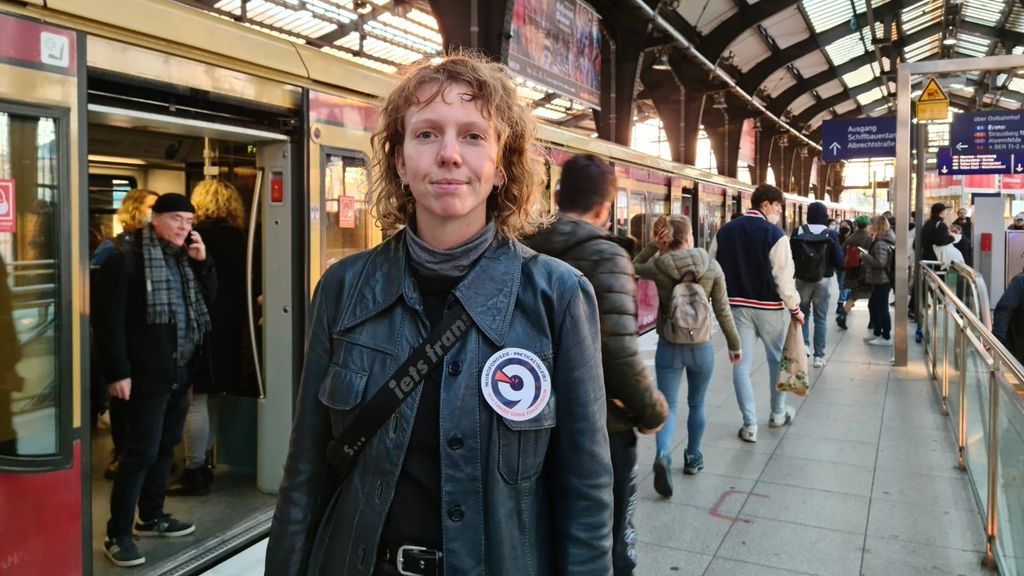
NOS / Job Auerbach
NOS . News•
It was so popular, it tempted so many people to use public transport that they screamed for a sequel: the 9 euro German ticket. While states wrestle with the national government over how much a follow-up ticket can cost and who will pay for it, Berlin is already offering a €29 ticket today. The criticism is still there.
While most people stamp their tickets, activist Leo Maurer ignores the stamping machine on the platform of Berlin’s Friedrichstrasse station. She does so in principle. And she is not alone.
Maurer simply thinks German public transport is too expensive and is taking action against it. At the beginning of September, she founded the so-called 9EuroFonds with seven other activists. An initiative to extend the popular €9 ticket, which expired on August 31.
A new group of travelers
The concept works as follows: you transfer nine euros per month to the Solidarity Fund, and you travel on public transport without a valid ticket. If you are checked without a ticket, the fine or operation will be paid by the fund. Within a month, more than 8,000 people joined, and more than 300 fines were paid.
The fare, or its encouragement, is of course illegal. But 9EuroFonds is above all a call for politicians to make public transportation accessible.
Research by VDV also shows that a €9 ticket has increased access. More than a quarter of the 52 million tickets sold were bought by people who typically use public transportation less than once a month. The call for an affordable successor to the €9 ticket is still going strong.
Disagreement about the follow-up ticket
What the follow-up ticket should look like is still not clear. To do this, the federal states and the national government must first agree on funding.
The federal government provides 1.5 billion euros, but the federal states are demanding more. Not only should tickets be cheaper, but the existing public transport offering should also be improved and expanded. In some sparsely populated areas, for example, buses do not run at all. Some federal states may find this more important than a cheap ticket.
Most likely, politicians will not make a decision until mid-October. A new public transport ticket is then scheduled to be introduced in January. But the citizens cannot wait any longer.
“The €29 ticket is still a lot of money for a lot of people,” says Maurer. “It’s a test balloon that deflates again after 3 months. People need a cheap, sustainable ticket.”
However, anyone who talks to travelers during rush hour hears mostly positive feedback about the ticket: “I think it’s good that there is a possibility to use this ticket,” says one, “especially for people with higher fares. It’s a bright spot” .

Zombie specialist. Friendly twitter guru. Internet buff. Organizer. Coffee trailblazer. Lifelong problem solver. Certified travel enthusiast. Alcohol geek.

